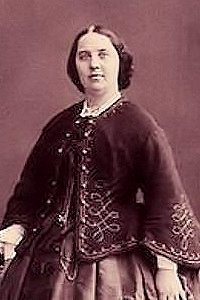Introduction
Born: May 17, 1821, London, England.
Died: February 18, 1885, London, England.
Buried: Highgate Cemetery (West), London, England.

Born: May 17, 1821, London, England.
Died: February 18, 1885, London, England.
Buried: Highgate Cemetery (West), London, England.

Charlotte was the daughter of Samuel Dolby and Charlotte Niven, and wife of violinist Prosper Sainton (married 1860).
A contralto, she studied at the Royal Academy of Music (RAM) (1832–37), where Domenico Crivelli was her principal singing-master.
In 1837, she was elected to a King’s scholarship, and first appeared at a Royal Philharmonic Society concert in 1841.
In October 1845, she sang at the Gewandhaus in Leipzig, Germany, through the influence of Felix Mendelssohn, who had been delighted by her singing in St. Paul. The contralto music in his Elijah was written for her voice, but she did not appear in that work until the performance at Exeter Hall in April 1847.
She was a principal soloist in the first English performance of Bach’s St. Matthew Passion, directed by William Sterndale Bennett at the Hanover Square Rooms, London, in April 1854.
Charlotte retired from public singing in 1870. Two years later, she started a vocal academy in London.
She made various attempts as a composer, with her cantatas The Legend of St. Dorothea (1876), The Story of the Faithful Soul (1879), and Florimel (1885) enjoying considerable success.
Her last public appearance was at her husband’s farewell concert in June 1883. A scholarship in her memory was founded at the RAM.
Her voice was of moderate power and of fine quality, but it was her dignified and artistic style that gave her the high place she held for so many years both in oratorios and ballads.